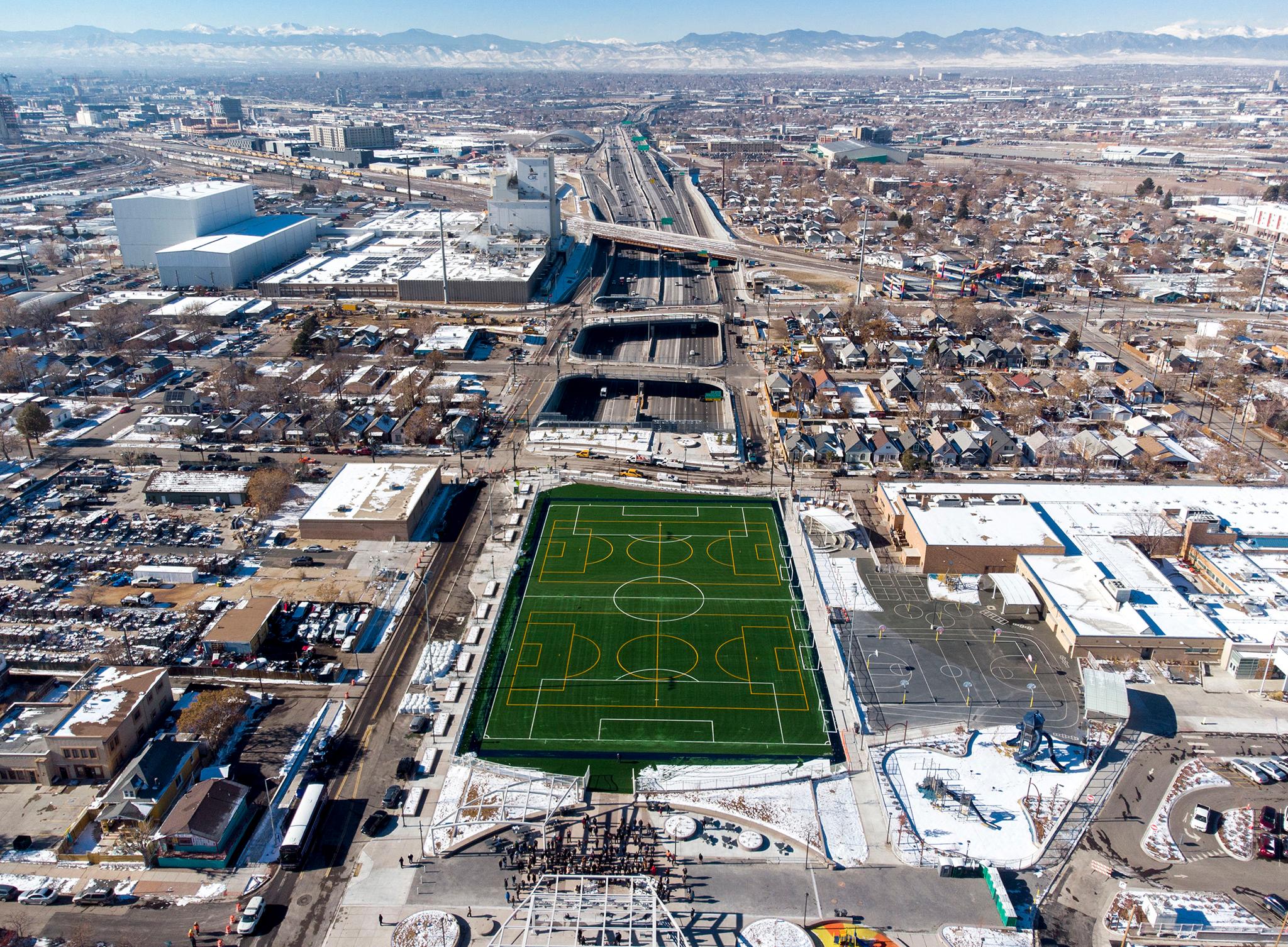Local, state and federal officials formally opened the park above I-70 in Elyria-Swansea Wednesday, concluding a five-year, $1.2 billion highway construction project.
At the park's ribbon cutting, government officials touted the project as a model for working with communities that have been harmed by urban planning in the past. Meanwhile, community advocates have lingering concerns, and are already looking toward what's next to protect their neighborhood.
The Colorado Department of Transportation began construction on massive project in 2018 to fix the crumbling viaduct that used to tower above the neighborhood. Like many highways built in the 1960s, I-70 divided Elyria-Swansea in half, separating a lower income, minority neighborhood. CDOT decided to demolish the viaduct, reroute the highway below the neighborhood and place a park on top, reconnecting the communities.
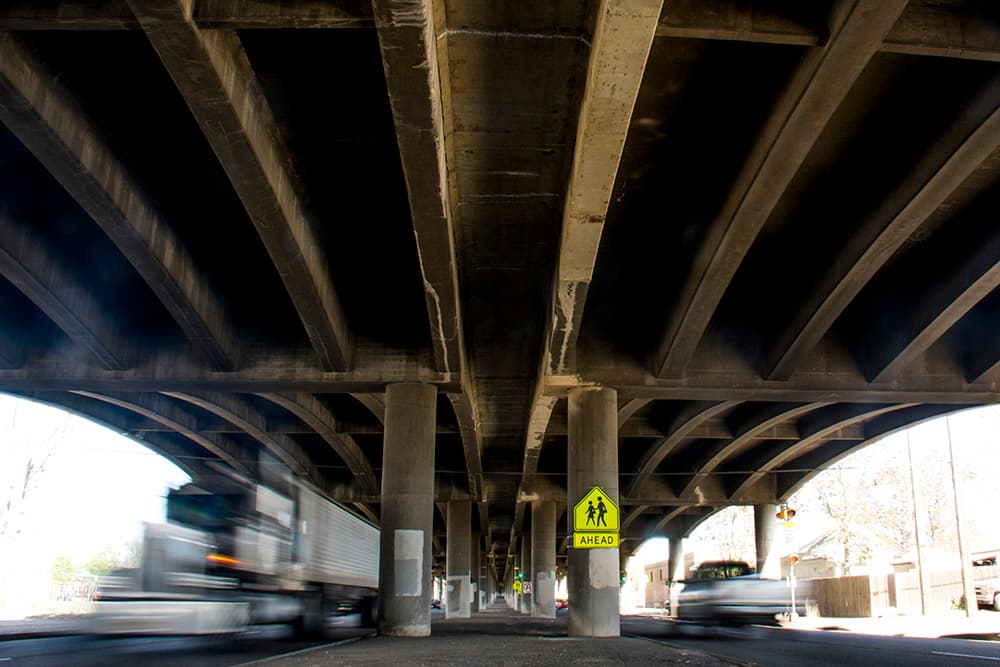
The project was controversial from the beginning, with community organizers advocating to reroute the highway out of the neighborhood completely, an idea officials saw as unfeasible.
Instead, CDOT's plan involved widening the highway, an approach studies show can increase traffic and that many cities, including Denver, have since moved away from. Advocates also worried about air quality and noise during construction. Meanwhile, CDOT took more than 70 homes and businesses in the process, relocating many long-time residents.
In response to community concerns about air quality and noise, CDOT settled for $500,000 with local groups, and promised a park above the newly lowered highway. Now, that park is open.
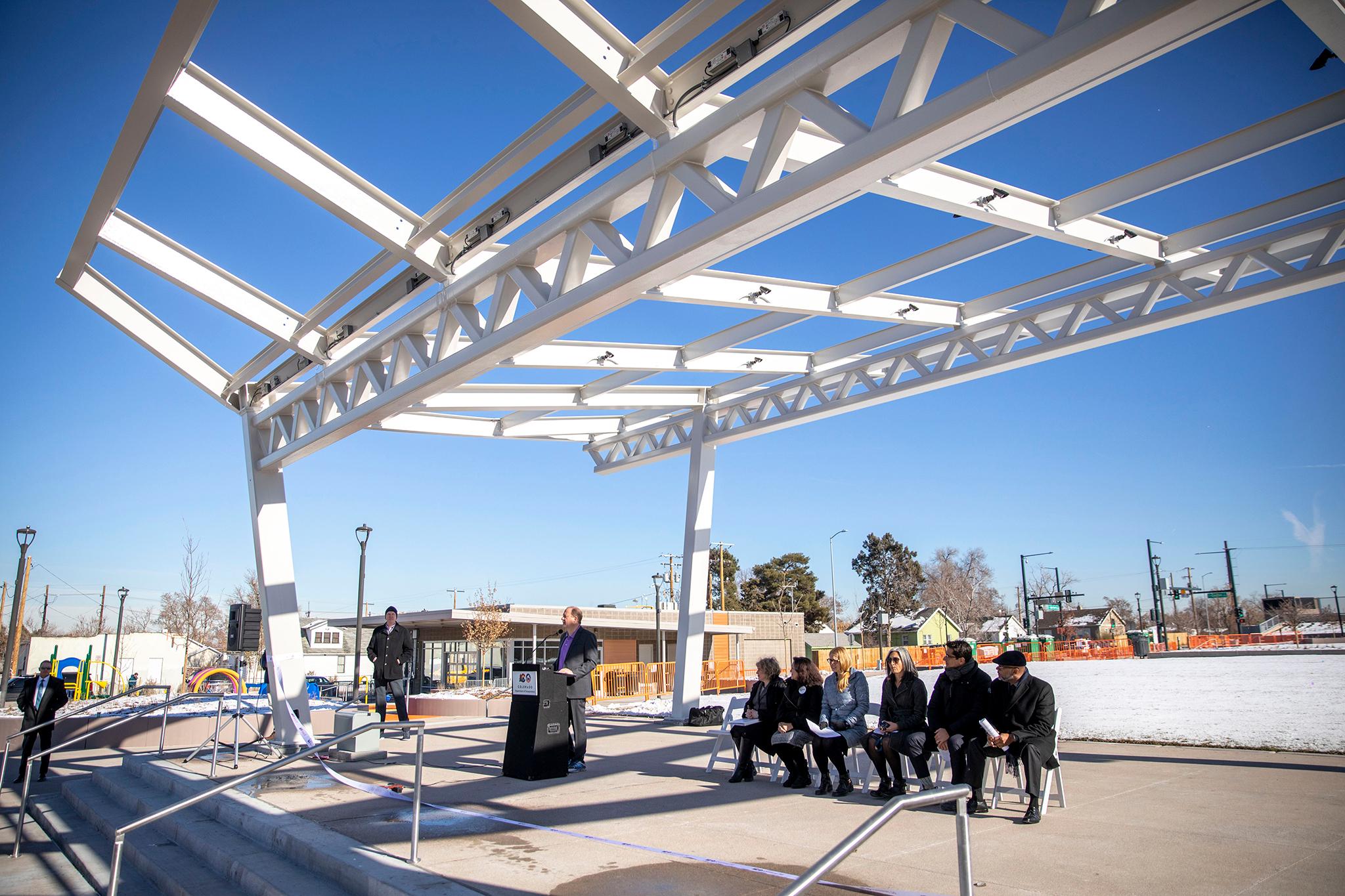
For government officials, the park is an example of planning gone right.
"The park we're standing on was based on an idea brought to CDOT by residents in Globeville, Swansea neighborhoods," Governor Jared Polis said at the ribbon cutting Wednesday. "This is really a model of innovative solutions, green infrastructure, state of the art technology and community involvement from the ground up."
Polis cited bilingual community liaisons and meetings with neighborhood residents in developing the park, which includes an amphitheater, soccer fields, a playground, a "splash pad" with water features and a community conference room. The park is also adjacent to Swansea Elementary School, which has special access during school hours.
Councilwoman Debbie Ortega, who used to represent the neighborhood and now serves at-large, said she initially was not on board with any expansion of the highway in Elyria-Swansea, but that she was proud of the "unprecedented commitment" to community concerns.
Much of the community input came from activists pushing the state to do more for the community, organizing under the tagline "Ditch the Ditch." Activists were vocal throughout the planning process, loudly criticizing CDOT to do more about health concerns and other worries about how the project would affect the neighborhood.
At the ribbon cutting, officials praised the project for finishing on time and in-budget. But it had its problems: soon after the new part of the highway running underneath the park opened in July, it flooded.
Still, Stephanie Pollack, acting administrator for the Federal Highway Administration, pointed to the project as a national example for the rest of the country.
"Reconnecting communities is a design principle, not just a grant program," she said. "We can't turn back time and face the fact that a highway was built through the middle of this neighborhood, an emblem of how infrastructure was built in the 1950s and 1960s, but we can be very clear as we move forward, the purpose of transportation must always be to connect, not to separate."
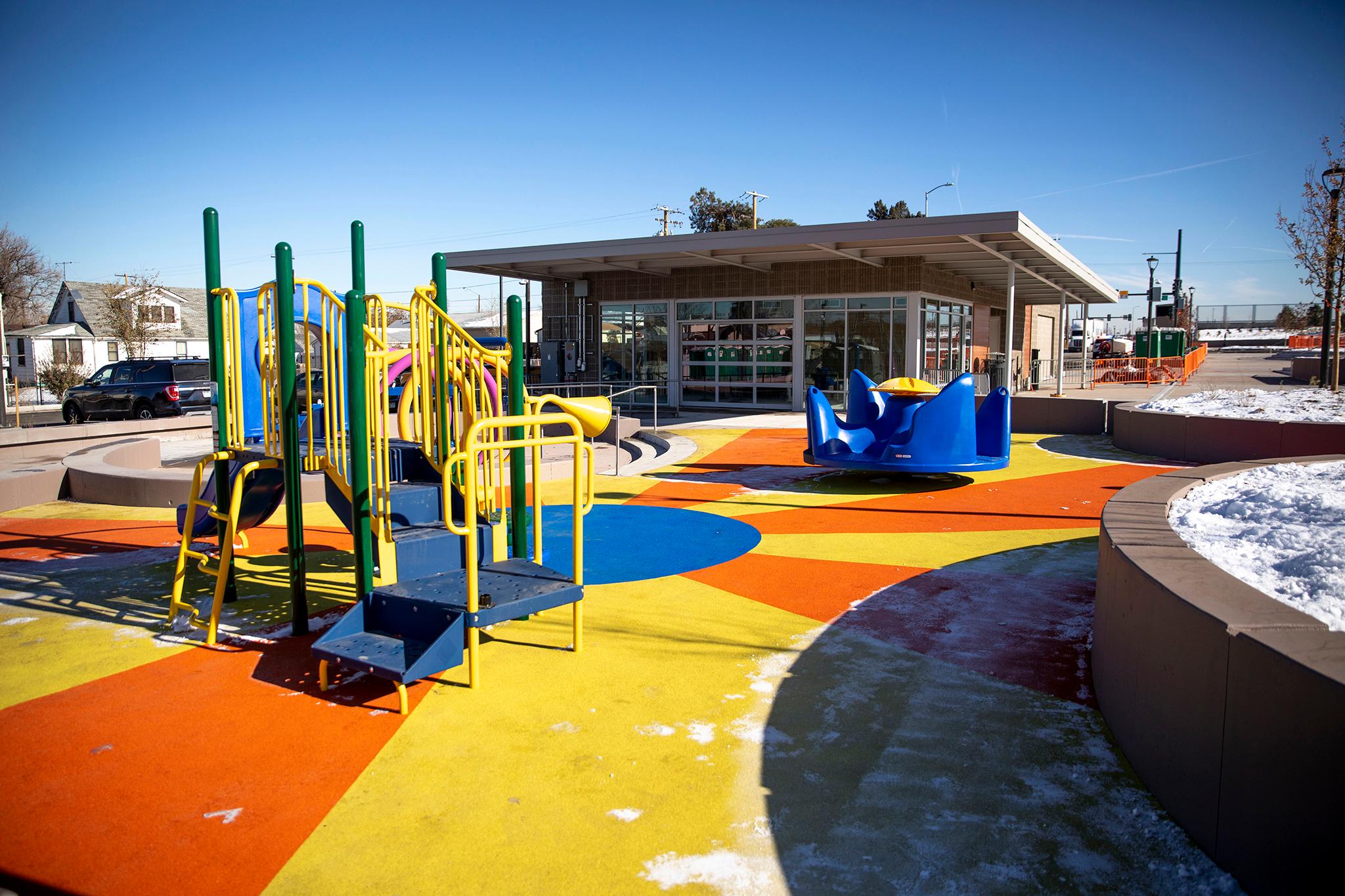
Community opinions are mixed. Many prefer the park over the viaduct but have lingering concerns about public health and gentrification.
"Lemonade has been made of this lemon situation," said Ana Varela, a member of GES Coalition, a community group advocating for health and housing justice. Varela said the community still feels the loss of long-time homes and businesses taken by the state during construction, but gained funds in a land trust which could help protect properties in the future.
"It's been a rough five years, for sure, said GES Coalition co-director Nola Miguel.
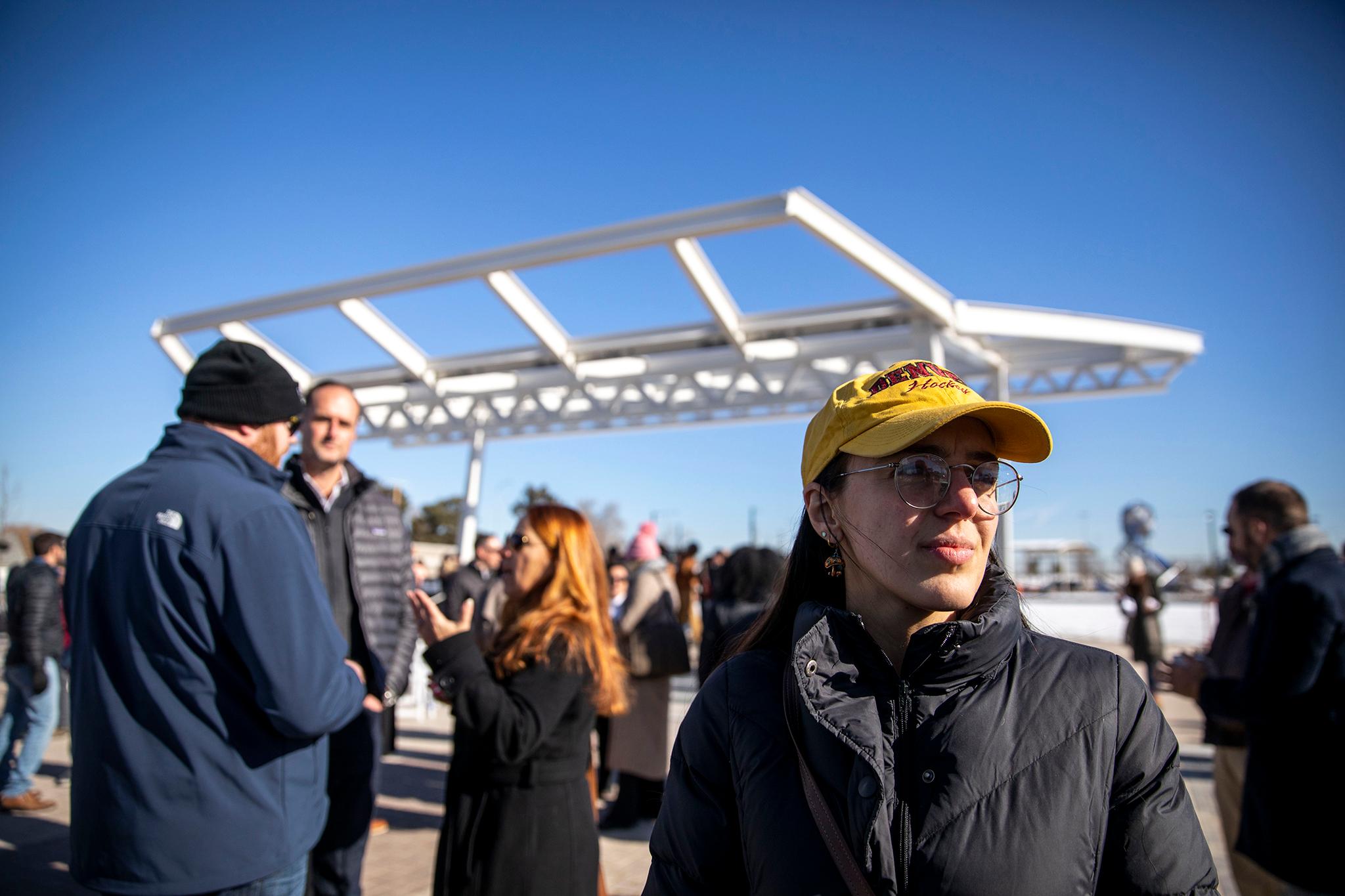
Denverite spoke with residents living by the park toward the end of construction in September. Some had played under the viaduct as a kid and were excited for their children to have a park to enjoy instead. Others cited increased traffic, noise and dust pollution during the project; while construction is wrapping up, it's still difficult to navigate detours through local streets. Plus, officials think the cover park will reduce air pollution, but some residents are skeptical of air quality at a park that sits right above the highway. They want the relationships touted during the ribbon cutting to continue.
"So now we have a nice park and amphitheater, what developments want to come in? Are they partnering with the community?" Varela asked.
CDOT has a few parcels of land left over from the project that will not be used, something CDOT Executive Director Shoshana Lew said is normal for a project of this size. Members of the GES Coalition want them to go back to the community to increase affordable housing and allow opportunities for people to build generational wealth.
Lew said CDOT has not yet decided what will happen. "We're very interested in continuing the conversations with the community around housing," she said.
For now, activists are continuing their fight against rising rents and gentrification. "That's the scary part," Miguel said.

